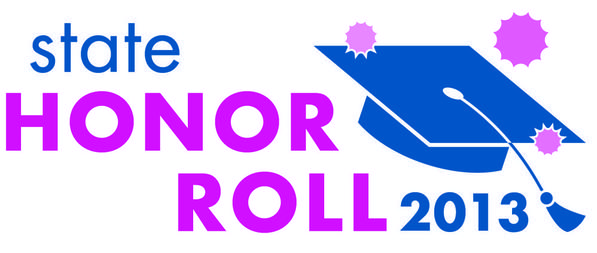New Report Shows Most States Fall Behind on Asthma and Allergy School Policies
Seven States and DC Pull Ahead on School Health “Honor Roll” as Momentum Grows for Medication-Stocking Laws
WASHINGTON, DC – PRNewswire-USNewswire – Asthma and food allergies at school are growing concerns and some states seem to be better than others when it comes to supporting these students. A new report by the Asthma and Allergy Foundation of America (AAFA) shows that most states still don’t have core policies in place to protect millions of children and adults in schools nationwide. In fact only 7 states and the District of Columbia currently meet the Foundation’s criteria to be listed on their “State Honor Roll™ of Asthma and Allergy Policies for Schools.” The report, at www.StateHonorRoll.org, is an annual look at how states compare on 18 core policy issues that affect kids and adults with asthma and allergies while they spend the day learning or working in America’s schools.
The bright-spot in state school policy for 2013 is the speed and momentum of efforts to pass laws allowing schools to stock emergency medication for anaphylaxis – the most severe, potentially deadly type of allergic reaction. Since last year’s State Honor Roll report, sixteen states have passed legislation that allows schools to stock epinephrine auto-injectors, the only treatment available for anaphylaxis. These states joined twelve others that had existing stocking laws, bringing the total number of states that allow schools to stock epinephrine to 28. Bills are awaiting committee votes in Michigan, New Jersey, North Carolina, and Pennsylvania. Legislators introduced bills in 3 states (Iowa, Mississippi, and New York) that did not become law.
Asthma is the most common chronic cause of school absences in the U.S., accounting for 14 million missed school days each year. Nearly 8 million children have asthma, over 10 million have other allergic diseases like nasal and skin allergies, and more than 3 million have food allergies putting them at risk for anaphylaxis. In addition, millions of adults have asthma and allergies, putting teachers, food workers and others in the school setting at risk. In fact, every day, asthma symptoms and allergic reactions strike in the classroom, gym, cafeteria, on the bus or playground.
That’s why the AAFA assesses state-level school policies regarding asthma and allergies in the annual State Honor Roll report (www.StateHonorRoll.org). The report recognizes progress where it is happening and provides a blueprint for advocates and policymakers to improve policies nationwide. Honoree states are included for their leadership on school health policies for public elementary, middle and high schools. The 2013 State Honor Roll list includes (in alphabetical order):
• Connecticut
• District of Columbia
• Indiana
• Massachusetts
• New Jersey
• Rhode Island
• Vermont
• Washington
AAFA identified 18 “core policy standards” to assess states, and those having at least 15 of the 18 policies are named to the Honor Roll. Other states have progressed, enacting laws that are consistent with AAFA’s core policy standards, but have not done enough to qualify for AAFA’s Honor Roll. The full report at www.StateHonorRoll.org presents the methodology, findings and performance of all 50 states and DC on core standards, “extra credit” indicators and several noteworthy new laws and programs. This year’s report also shines a spotlight on the rapid pace of new policies that support people with food allergy and anaphylaxis, and the quick progress being made at the state level on medication stocking laws, now established in 28 states.
About the Study
For AAFA’s State Honor Roll report, three categories of policies were assessed: Medication & Treatment policies, Awareness policies and School Environment policies. Within these categories AAFA research and policy experts, in consultation with leaders in the fields of medicine, education and advocacy, identified 18 core policy standards relating to asthma and allergies in schools. Policy areas included school nurse-to-student ratios, laws allowing students to carry and administer their asthma and anaphylaxis medications, indoor air quality policies for school buildings, smoking bans and cessation programs, and more.
The full report, methodology, tables, detailed state profiles, as well as back-to-school tips and tools, are available at www.StateHonorRoll.org. The 2013 report is made possible by charitable grants from Mylan Specialty, Genentech and individual donations to AAFA from patients, families and supporters.
About AAFA
Celebrating 60 years of service this year, the Asthma and Allergy Foundation of America (AAFA) is a not-for-profit organization dedicated to improving the quality of life for people with asthma, allergies and related conditions through education, advocacy and research. For more information about asthma and allergies, visit www.aafa.org or call 1-800-7-ASTHMA.
###
MEDIA ONLY CONTACT:
Talisa White, AAFA External Affairs
1-202-466-7643, Ext. 237
Talisa@aafa.org


Comments (2)